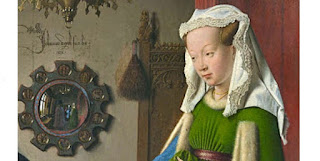Time flies, doesn't it? We're a week late to post about Mothering Sunday1. Dyer is just one of a number of authors of Popular Antiquities to draw from more or less the same references. His volume, however, includes information taking the origin of the simnel cake back at least to Henry I.
Simnel Sunday is better known as Mid-Lent or Mothering Sunday, and was so called because large cakes called Simnels were made on this day.
Bailey in his Dictionary... says, Simnel is probably derived from the Latin Simila, fine flour, and means a sort of cake, or bun, made of fine flour, spice, &c. Frequent mention is made of the Simnel in the household allowances of Henry the First.
Cancellarius v solidos in die et i Siminellum dominicum, et ii salum, et i sextarium de vino claro, et i sext. de vino expensabili, et unum grossum cereum, et xl frusta Candell." —Libr. Nigr. Scaccarii | To the chancellor 5 shillings per day and 1 Sunday simnel, and 2 salt, and 1 pint of clear wine, and 1 pint of table wine, and one large candle, and 40 candle chips2 —Black Book of the Treasury. |
The " Siminellum Dominicum," Hearne thinks, was a better kind of bread and that "Siminellum Salum," from [s]al, cibus, victus, was the ordinary bread ; if it be not the Latin Salis (Siminellum Salinum), in which case it denotes that more salt is contained in it than in the other. If the derivation from Simnel be not satisfactory, perhaps the Anglo-Saxon [s]ymbel, a feast or banquet, whence [s]imbel, daeg, a festival day, may suffice.3
As is so often the case, the poetry of Herrick provides a stanza on the tradition that informs us that it was practiced throughout much or most of England for centuries.
Herrick in his Hesperides has the following:
To Dianeme.
I'll to thee a Simnell bring,
'Gainst thou go'st a mothering ;
So that, when she blesseth thee,
Half that blessing thou'lt give me.
Mothering Sunday,—In many parts of England it was formerly customary for servants, apprentices, and others to carry presents to their parents on this day. This practice was called Going a-Mothering, and originated in the offerings made on this day at the mother-church.
Dyer seems a little off the mark here. I am not aware that the day was dedicated to both parents but only to one's mother. Much wider celebrations, however, were practiced on the same day to relieve the fast of Lent with merriment.
1 Dyer, Thiselton. British Popular Customs (1900). 113-17.
2 candle chips] presumably to melt his own additional small candle(s).
3 Hampson, R. T. Med. AEvi Kalendarium (1841). I.177n.
Also at Virtual Grub Street:
Paul Hentzner in the Presence of Queen Elizabeth I: September 1598. January 3, 2024. “ Hentzner kept a now famous dairy...”
- Rocco Bonetti's Blackfriars Fencing School and Lord Hunsdon's Water Pipe. August 12, 2023. “... the tenement late in the tenure of John Lyllie gentleman & nowe in the tenure of the said Rocho Bonetti...”
On Shakespeare's lameness and historical-fiction biography, etc. August 5, 2023. “Those who support Sogliardo of Stratford and other authorship candidates generally stop by from time to time to remark...”
- Shakespeare CSI: Sir Thomas More, Hand-D. April 22, 2023. “What a glory to have an actual hand-written manuscript from the greatest English writer of all time!”
- Check out the English Renaissance Article Index for many more articles and reviews about this fascinating time and about the Shakespeare Authorship Question.
- Check out the Queen Elizabeth I Biography Page for many other articles.






No comments:
Post a Comment